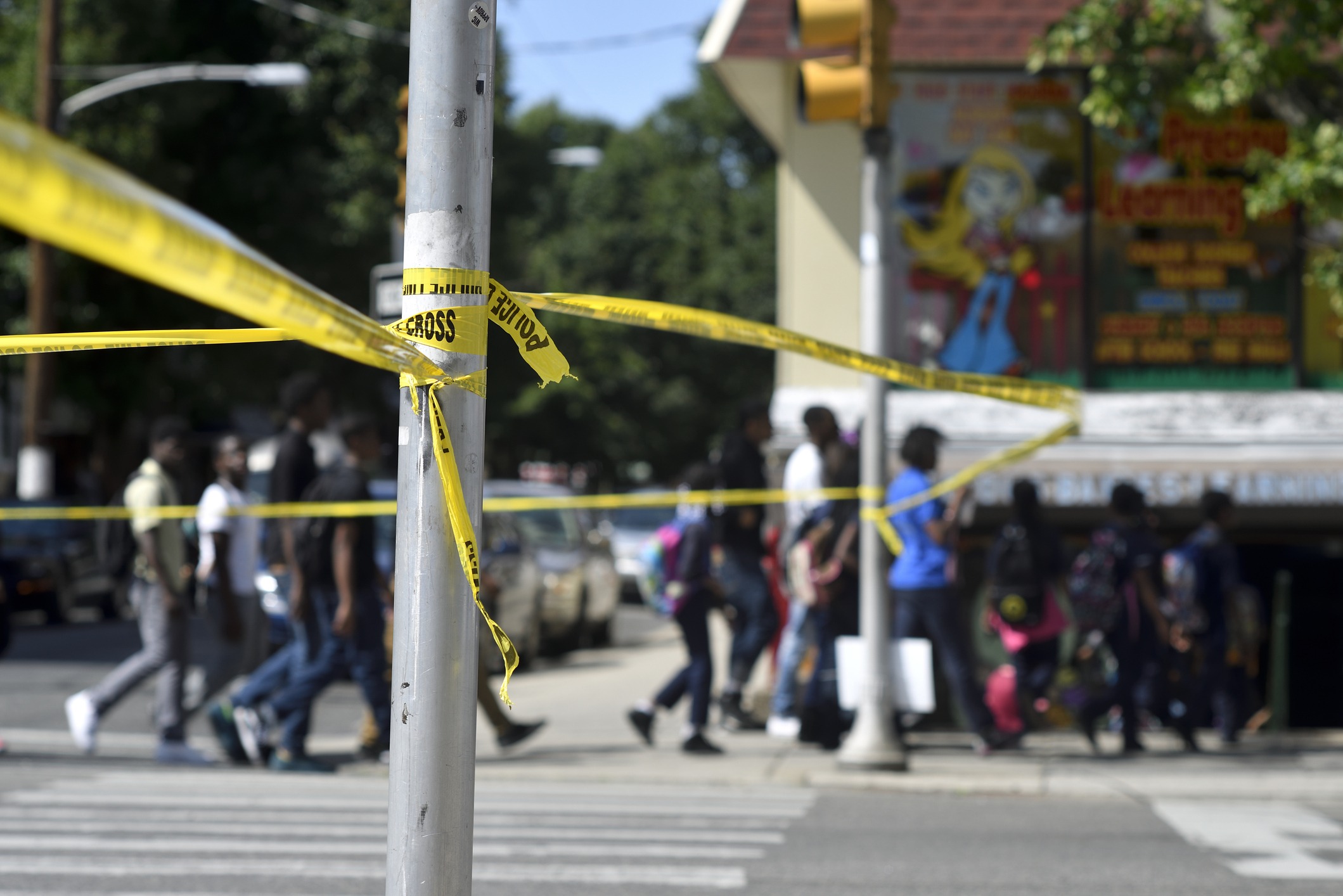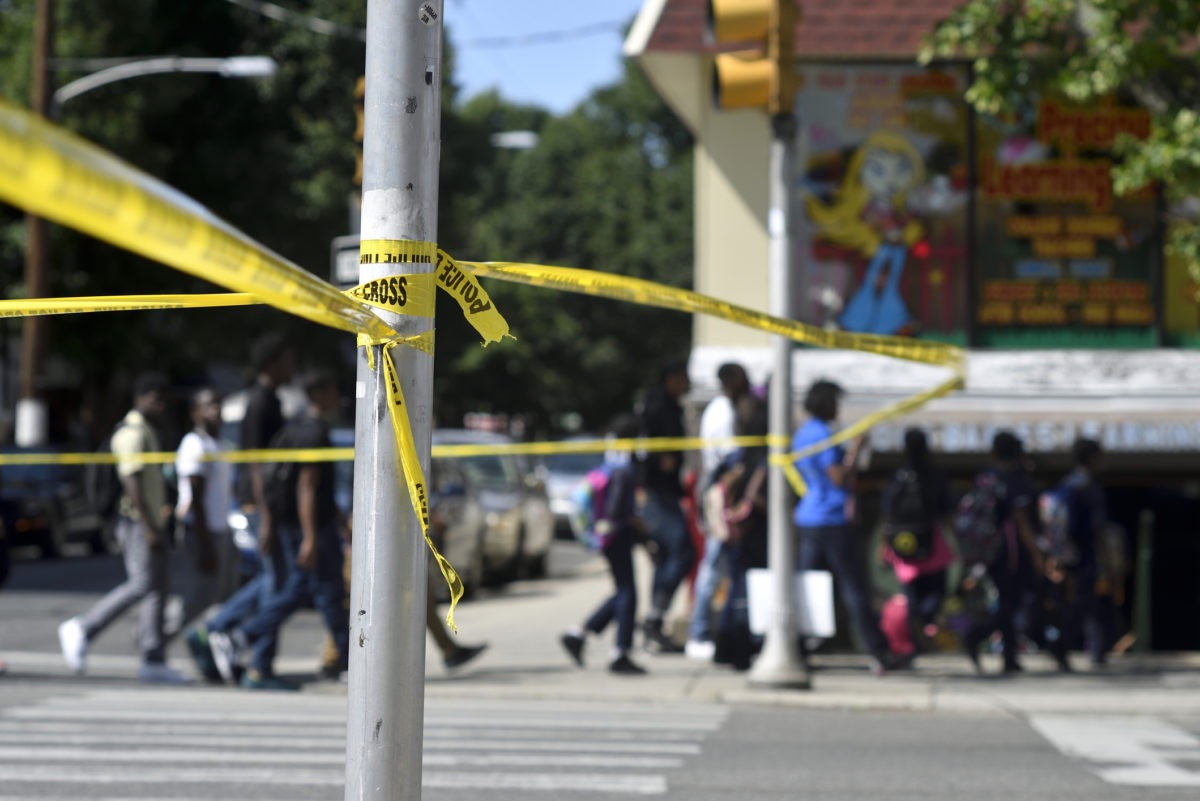Newsletter
Intergenerational Partnerships are Critical to Curb Youth Violence
Intergenerational partnerships must be prioritized amid the youth gun violence epidemic — not more police and prisons.


Intergenerational Partnerships are Critical to Curb Youth Violence
by Ras Stanford
In 1993, only a year after the Rodney King uprising in Los Angeles County and its surrounding areas, my then-17-year-old brother was killed in a drive-by shooting only one block away from our Southern California apartment complex.
The ripple through our family continues today. We live with the effects of institutionalization, juvenile incarceration, and PTSD. My other brother and I both grapple with parenting young children nearly 30 years later, in a world where violence and political unrest surge—and where politicians seek to punish young people while reducing social services that let them thrive.
When my remaining brother and I discuss our experiences, we often wonder how our journeys with community violence relate to those of young people today. As we have learned firsthand, feelings of helplessness and hopelessness often drive community violence, and carceral interventions fall desperately short. What we needed was intentional care from adults and the opportunity to share our own experiences and solutions for our environments. As Black children and teens, these opportunities were few and far between, especially as we experienced displacement and the juvenile legal and psychiatric systems.
Today, I live in Philadelphia, which is battling gentrification, wealth inequality, segregation, and a new surge of gun violence similar to what Los Angeles County experienced in my youth. When high-profile news stories involving youth violence and gun deaths circulate, it’s easy to give into nihilism and hopelessness about the future. According to a 2022 survey of 1,300 Philadelphia students aged 12 to 19 by the Enough is Enough Students Against Violence Steering Committee, 46 percent said they’d had a loved one who’d been shot, 36 percent said they’d witnessed gun violence directly, and 11 percent said they had been victims themselves.
As a social worker with lived experience of gun violence, I have been grateful to have my own experiences to draw from as I work with youth in the city. Just sharing similar stories with young people as a non-judgmental mentor can make all the difference. The need for intergenerational partnerships has not been prioritized amid the youth gun violence epidemic. America’s leaders seem once again poised to fund police and prisons instead.
Kids in these environments cannot solve this vast issue on their own. Intergenerational partnerships—to help build community organizations, youth leaders, and job opportunities—are a proven strategy to protect young people from violence and incarceration. Intergenerational interventions that work well involve adults with lived experience empathizing with youth, validating their experiences, and showing young people they are pivotal parts of their communities.
For example, Project Imagine in Danville, Virginia, provides at-risk kids with mentorships, employment opportunities, and the ability to represent their neighborhoods in city meetings. In Sacramento County, California, My Brother’s Keeper trains teens as mentors who work with younger students.
In Philadelphia, Queen Mother Falaka Fattah, co-founder of the House of Umoja, a nonprofit that mentors young and predominantly Black locals, has weathered over 50 years of youth violence. In 1969, Fattah was a seasoned journalist and editor of House of Umoja Magazine, when letters poured in from Philadelphians who demanded answers about the surge in youth violence that gripped the city.
“After learning all the statistics about the murders, hospitalizations and incarceration rates, and about the mothers sending their sons out of the city to save their lives, I stopped looking for what others could do, and started looking inward,” Fattah told The Appeal.
In a radical act of intergenerational solidarity, Fattah and her late husband, David Fattah, invited the gang her then-16-year-old son ran with into their home, parenting them as their own.
That type of care and intentional listening went a long way, as the Fattahs continued to serve as surrogate parents for the community’s young men. This hands-on mentoring eventually led to the brokering of the Imani Peace Pact in 1974, a gang truce that reduced homicides in the area within three years. The group says it has helped to raise and nurture more than 3,000 young Philadelphians in an attempt to protect them from community violence.
Fattah has noticed some changes in the dynamics of youth violence, like the rapid spread of fights over social media. But other things have stayed the same.
“They like to eat,” laughed Fattah. “Before we do anything we make sure we have a good meal.”
Now, The House of Umoja is training its first cohort of what it calls the Umoja Youth Peace Corps. The kids who participate in this program serve as ambassadors for peace for their community and are trained in community building, leadership, career exploration, and more. Recruitment for a new cohort is underway. The next program is slated to start this fall.
“I’m optimistic,” said Fattah. “All around the city, communities are stepping up—we’ve got groups of dads forming ‘safe corners’ to protect our youth before and after school, male teachers at Martin Luther King High School stepping up for their students, groups just listening to young people.”
But Fattah reiterates the need for young people and concerned community members to get involved.
“It’s not just leaders who are trying to figure out what to do,” she said. “It has to be from the grassroots up.”
In the news
Black feminist scholars Mariame Kaba and Andrea J. Ritchie spoke with Sam Levin about their new book, No More Police: A Case for Abolition. “The current system is not sustainable,” Kaba told Levin. “Human beings will put up with a lot, but what the violence of policing does is get at people’s sense of the right to be free.” [Sam Levin / The Guardian]
Jesse Rinke writes about becoming a literary mentor to fellow incarcerated people. [Jesse Rinke / Prison Journalism Project]
A prison chaplain was sentenced to seven years in prison for sexually abusing incarcerated women. [Michael R. Sisak and Michael Balsamo / Associated Press]
ICYMI — from The Appeal
A transgender man is suing New York prison officials for allegedly subjecting him to an illegal genital exam. He claims staff threw him in solitary confinement after he objected and threatened to hold him there until he submitted.
Senior reporter Elizabeth Weill-Greenberg was on the Law and Disorder podcast discussing conditions in Illinois and Virginia prisons.
Pop the champagne! The Appeal has been named a finalist for the 2022 Online Journalism Award for Excellence in Social Justice Reporting for our “Prison Dispatches from Incarcerated Writers” series.
Senior reporter Meg O’Connor’s investigation into the NYPD Special Victims Division’s neglect and mismanagement of sex crimes has also been selected as a finalist for the Institute for Nonprofit News’s 2022 Nonprofit News Awards.
That’s all for this week. As always, feel free to leave us some feedback, and if you want to invest in the future of The Appeal, please donate here.
